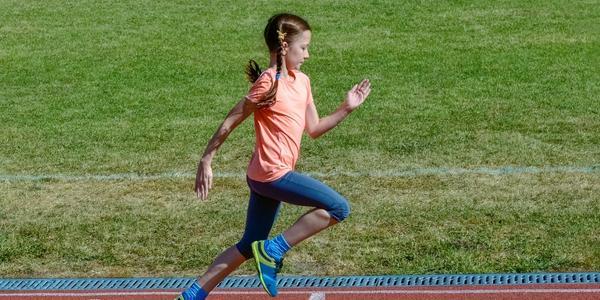Parents and Coaches Often Overlook Players’ Emotions
It may seem as if a player’s negative emotions or outbursts only affect the player, but the impact is much more far-reaching.
In one of our Ultimate Sports Parent podcasts, our guest explained that negative emotions can spread, like a virus, from one team member to others. She called this “emotional contagion.”
Let’s look at two scenarios. Imagine a basketball team that is battling for a playoff spot.
One player is particularly volatile on the court if a teammate makes a mistake. She yells at that player and won’t even pass her the ball when she’s open.
All the players on the court and the bench sense her anger and frustration. The tension on the court affects the whole team dynamic.
In our second scenario, a quarterback is sacked for the fourth time in a game. He stands on the sideline with his head down, dejected, and isolates himself from his teammates.
He appears to have given up on the team, and with five minutes left in the fourth quarter trailing by 10 points, the offense begins to feel the game is lost.
The quarterback’s negative emotions have sent messages to his teammates, affecting how they respond to him and perform in the game.
Negative emotions can trigger a domino effect throughout your team. Negative emotions poison team morale, cohesion and motivation.
Conversely, positive emotions can promote a productive mood among teammates. If a player feels determined, those around her will pick up on those emotions, and her teammates will feel energized.
If a young athlete makes a mistake in a game but maintains their poise, their teammates will take notice.
Team members will feel more confident, motivated and focused on responding positively. When kids are excited about meeting a challenge in a game, their teammates rally around them.
One player can make a big difference!
Young athletes should consider three key points to help them become more aware of how their emotions affect their teammates.
They should ask themselves:
1. How have you responded to stressful circumstances in the past?
2. How did your negative emotions affect your performance?
3. How did your emotions impact your teammates’ performance?
It’s important that kids have a productive impact on their teams. When this happens, they are good leaders.
As the Philadelphia Eagles headed into the 2023 Super Bowl, defensive tackle Fletcher Cox was asked about Philadelphia’s quarterback Jalen Hurts’ poise and leadership.
“Even when things aren’t going our way or his way, you never see him really frustrated,” said Cox.
“You never see him screaming at a teammate for maybe messing something up, or it didn’t go the way that he wanted it to go. When your quarterback is like that, you definitely want to go out and play harder for him.”
The spread of emotions among teammates impacts team play. Young athletes need to learn that controlling their emotions is a critical mental skill.
Kids should consider how their emotions affect their performance or their teammates’ performance. They need to think about the message they want to send to their teammates during competitions. How can they respond during stressful situations in ways that motivate and energize their team?
Young athletes can’t stop themselves from feeling strong emotions, but with mental training, they can manage their emotions and help give their team a boost.
Related Articles on Kids’ Mental Game:
- How Parents’ Emotions Affect Sports Kids
- Help Sports Kids Cope with Bad Calls from Ref
- The Power of Pregame Visualization
*Subscribe to The Sports Psychology Podcast on iTunes
*Subscribe to The Sports Psychology Podcast on Spotify
Improve Your Mental Game From Anywhere In The World

We’re certain that, as a parent, you want to help your child develop confidence and discipline in sports and life. And as a sports parent, you’d love for your children to reach their potential in sports. But encouraging your child to strive for greatness without pressuring them can be a challenge.
You can get expert mental coaching with us from anywhere. Meet with us via Zoom, Skype, FaceTime or phone call. With today’s video technology, we are able to connect with athletes and coaches all over the globe.
Call Us Today to Schedule Your Free 15-Minute Session.
Find Out How Your Athlete Can Benefit From One-on-One Mental Coaching!

